
 The Humanitarian Law Center (HLC) filed a criminal complaint on November 2, 2016, with the Office of the War Crimes Prosecutor of the Republic of Serbia, for a war crime committed in October 1991 against Croat civilians in the village of Lovas in Croatia (CRO).
The Humanitarian Law Center (HLC) filed a criminal complaint on November 2, 2016, with the Office of the War Crimes Prosecutor of the Republic of Serbia, for a war crime committed in October 1991 against Croat civilians in the village of Lovas in Croatia (CRO).
The complaint was filed against the former Commander of the Second Proletarian Elite Motorized Brigade of the Yugoslav People’s Army (JNA 2nd PEMBR), Dušan Lončar.
On October 9th, 1991, Dušan Lončar ordered an attack on the village of Lovas (East Slavonia) and the cleansing from the terrain of members of the Croatian National Guard and of the Republic of Croatia Ministry of the Interior, as well as of population ”showing hostility”. Early in the morning the following day, Lončar ordered the Howitzer Division of the JNA 2nd PEMBR to open fire and launch an artillery attack on Lovas, in which two Croat civilians were killed. Soon after this, members of the Dušan Silni (‘Dušan the Mighty’) volunteer unit entered Lovas, as part of the execution of the order issued by Lončar, and started shooting at random, and throwing hand grenades into backyards and houses. They killed several civilians while they were in their homes, and took others outside their houses and killed them in the street or other places, which resulted in the destruction and damaging of civilian property and the death of 21 civilians.
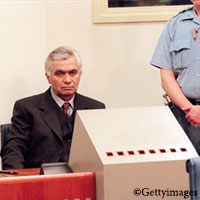
 The Office of Tomislav Nikolić confirmed on January 11th, 2017, that he is going to meet the wartime Speaker of the Republic of Srpska Parliament, the convicted war criminal Momčilo Krajišnik, in the building of the General Secretariat of the President of the Republic of Serbia, Belgrade. The Humanitarian Law Center (HLC) maintains that this move made by the President represents an unacceptable mockery of the victims, and is in direct contradiction with the proclaimed intention of Serbia to work on reconciliation in the region.
The Office of Tomislav Nikolić confirmed on January 11th, 2017, that he is going to meet the wartime Speaker of the Republic of Srpska Parliament, the convicted war criminal Momčilo Krajišnik, in the building of the General Secretariat of the President of the Republic of Serbia, Belgrade. The Humanitarian Law Center (HLC) maintains that this move made by the President represents an unacceptable mockery of the victims, and is in direct contradiction with the proclaimed intention of Serbia to work on reconciliation in the region.






 The Administration Committee of the National Assembly of Serbia has proposed Danica Marinković, a former investigative judge of the Priština District Court at the time of the war in Kosovo, as a candidate for the position of Member of the Board of the Anti-Corruption Agency. The National Assembly will be deciding on the election of the candidate in an urgent procedure. Human rights organizations underline that there is ample evidence available to the public, already presented in
The Administration Committee of the National Assembly of Serbia has proposed Danica Marinković, a former investigative judge of the Priština District Court at the time of the war in Kosovo, as a candidate for the position of Member of the Board of the Anti-Corruption Agency. The National Assembly will be deciding on the election of the candidate in an urgent procedure. Human rights organizations underline that there is ample evidence available to the public, already presented in 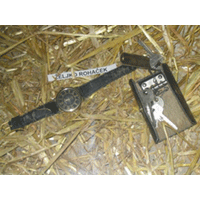
 November 20th 2016 marks the 25th anniversary of the crime committed at „Ovčara“ farm near Vukovar, when members of the local territorial defense unit (Teritorijalna odbrana – TO) and Serb volunteers under the command of the Yugoslav People’s Army (JNA) killed 265 Croatian civilians and prisoners of war. The Humanitarian Law Center (HLC) on this occasion would like to remind the public that the trial of this case before the domestic courts has not yet been finally completed, even after more than 12 years.
November 20th 2016 marks the 25th anniversary of the crime committed at „Ovčara“ farm near Vukovar, when members of the local territorial defense unit (Teritorijalna odbrana – TO) and Serb volunteers under the command of the Yugoslav People’s Army (JNA) killed 265 Croatian civilians and prisoners of war. The Humanitarian Law Center (HLC) on this occasion would like to remind the public that the trial of this case before the domestic courts has not yet been finally completed, even after more than 12 years.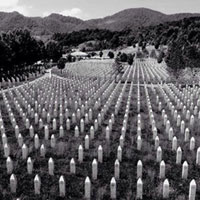
 On 15 November 2016, the National Assembly of the Republic of Serbia opened the debate on the
On 15 November 2016, the National Assembly of the Republic of Serbia opened the debate on the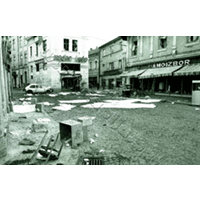
 The War Crimes Department of the Higher Court in Belgrade has been conducting proceedings for the recognition and execution of the final judgment passed by the Court of Bosnia and Herzegovina (BiH), by which Novak Đukić was sentenced to 20 years’ imprisonment for a war crime against a civilian population, which he committed by ordering an artillery strike on the Tuzla downtown area known as Kapija on 25 May 1995. At the same time, Đukić’s defence team has been waging a campaign in Serbia to publicly prove Đukić’s supposed innocence. In an effort to deny the facts established in the final judgment against Đukić, his defence team is using the results of an experiment conducted at the training grounds of the Army of Serbia in Nikinci, near Ruma. On the basis of this out-of-court experiment conducted by experts hired by Đukić himself, it was concluded that Đukić and the Army of Republika Srpska (VRS) are not to be held responsible for the massacre of civilians in Tuzla.
The War Crimes Department of the Higher Court in Belgrade has been conducting proceedings for the recognition and execution of the final judgment passed by the Court of Bosnia and Herzegovina (BiH), by which Novak Đukić was sentenced to 20 years’ imprisonment for a war crime against a civilian population, which he committed by ordering an artillery strike on the Tuzla downtown area known as Kapija on 25 May 1995. At the same time, Đukić’s defence team has been waging a campaign in Serbia to publicly prove Đukić’s supposed innocence. In an effort to deny the facts established in the final judgment against Đukić, his defence team is using the results of an experiment conducted at the training grounds of the Army of Serbia in Nikinci, near Ruma. On the basis of this out-of-court experiment conducted by experts hired by Đukić himself, it was concluded that Đukić and the Army of Republika Srpska (VRS) are not to be held responsible for the massacre of civilians in Tuzla.
 The Humanitarian Law Center (HLC) filed a criminal complaint on November 2, 2016, with the Office of the War Crimes Prosecutor of the Republic of Serbia, for a war crime committed in October 1991 against Croat civilians in the village of Lovas in Croatia (CRO).
The Humanitarian Law Center (HLC) filed a criminal complaint on November 2, 2016, with the Office of the War Crimes Prosecutor of the Republic of Serbia, for a war crime committed in October 1991 against Croat civilians in the village of Lovas in Croatia (CRO).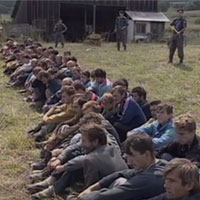

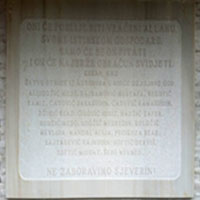
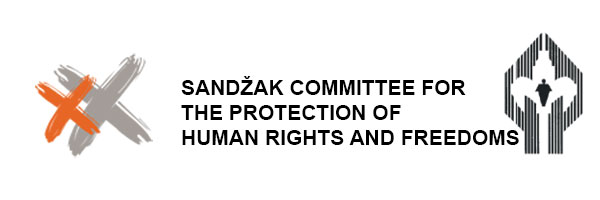 On Saturday, 22 October, it will be twenty-four years since 16 Serbian citizens of Bosniak ethnicity from Sjeverin, near Priboj, were kidnapped and subsequently killed by members of Bosnian Serb forces during the armed conflict in Bosnia and Herzegovina (BiH). On this occasion, the Humanitarian Law Center (HLC) and the Sandžak Committee for Protection of Human Rights and Freedoms reiterate that after so many years of search the mortal remains of the victims have not yet been found, while the Serbian institutions persistently refuse to provide the victims with reparation, support and recognition.
On Saturday, 22 October, it will be twenty-four years since 16 Serbian citizens of Bosniak ethnicity from Sjeverin, near Priboj, were kidnapped and subsequently killed by members of Bosnian Serb forces during the armed conflict in Bosnia and Herzegovina (BiH). On this occasion, the Humanitarian Law Center (HLC) and the Sandžak Committee for Protection of Human Rights and Freedoms reiterate that after so many years of search the mortal remains of the victims have not yet been found, while the Serbian institutions persistently refuse to provide the victims with reparation, support and recognition. 
 The Court of Appeal in Belgrade
The Court of Appeal in Belgrade 
 The Higher Court in Belgrade rendered a judgment in the
The Higher Court in Belgrade rendered a judgment in the